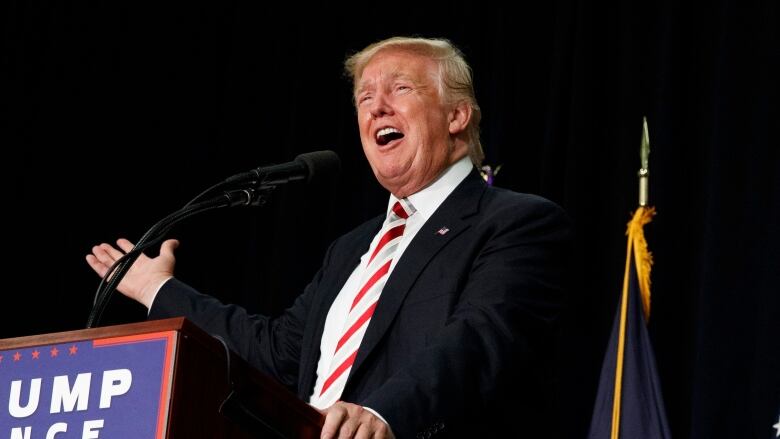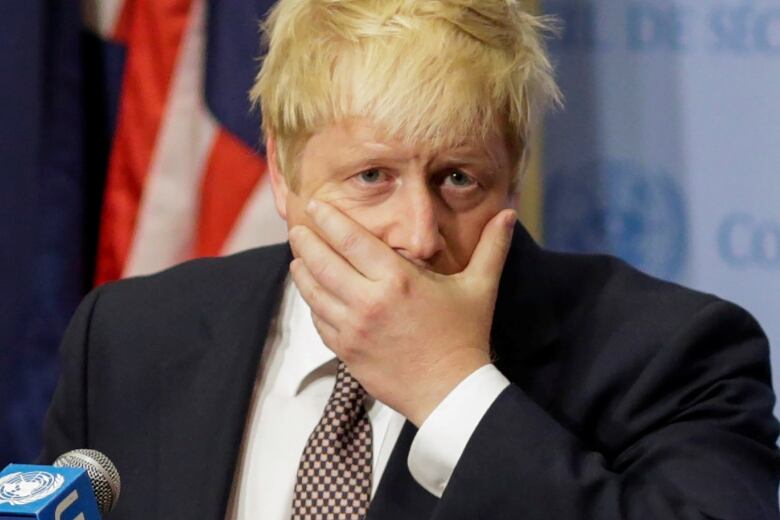Avoiding crazy is Canada's best economic strategy: Don Pittis
Country's greatest asset in a far too exciting world is being just a little bit boring

There has been much hand-wringing over last week's gloomy economic statistics, but in a world that seems driven to findradical solutions to a host of difficult problems, Canada has an opportunity to distinguish itself.
It is time to play the boring card.
- Canada's biggest drop in full-time employment in 5 years
- Trump talks economicsin Detroit
- Vail Resorts makes $1.4B takeover offer for Whistler Blackcomb
The current embodiment of wacky, as the media would have it, is Donald Trump, with his schemes to build a Mexican wall and unilaterally withdraw from world trade deals.
But Trump is far from alone in seeking off-the-wall solutions to the economic malaise that seems to have overwhelmed the world.
Pressured by the politics of "do something," governments,central bankers and popular movements trying to extricate themselves from the mire are digging themselves deeper.
Obviously, Canada has its problems and we should not be complacent, but in the grand scheme of things, those problems are mild.
Fixing itself
Our resource economy has suffered from the plunge in oil prices, and opinion on whether to build new pipelines remains sharply divided, but despite its problems, the Canadian resource economy has already begun to fix itself.

The decline in crude prices has been sharp reminder to push costs down and the most efficient players willbe ready to profit when prices begin to creep up again as soon as next year.
Our oil producing regions have never been one-industry economies. In some ways the sharp decline in oil prices, though painful, is a corrective to remind those economies to avoid putting theireggs in a single basket.
Instructive example
If we needed an example of why that's a bad idea, a glance at Venezuelais instructive.
With oil gone south, their socialist paradise predicated on sharing the oil wealth has turned the situation intosomething "worse than in a war."
Thegovernment's radical solution is toput the economy into the hands of the army. Good luck with that.
If you are travelling or trying to buy a German car, you might not like the fact that the Canadian dollar is so low. If you are exporting you might be sorry it is so high.But be grateful Canada still has its own currency.
In Europe, the countries of the south only wish they had a currency that would automatically weaken when their economies began to struggle. Instead, saddled with the euro, their exports are overpriced, pushing unemployment into the 20 per cent range.
For better or worse
Attempts to solve the problem by the European Central Bank with low and negative interest rates have failed to solve the problem. Some fear it has the potential tomakethings worse.
Japan, another country trying to solve its problems with negative interest rates and other interventions, is struggling to break out of a decades-long death spiral.

In Britain, the radical solution to all its problems was to pull out of the European Union. So far the move has been nothing but destabilizing, and a miracle recoveryseems far off.
The appeal of boring
Brazil is in terrible trouble despite the Olympics, torn apart by corruption and two yearsof a shrinking economy.China and Turkey seem to be creeping closer to dictatorship, with the danger of tightening the lid on an overheated pressure cooker.
Compared to all those countries, Canada seems completely boring. Without enthusiasm we support free trade. The dollar is never quite where we want it, but the Bank of Canada has not gone overboard to cut rates and push the currency down.
The federal government has begun a modest fiscal spending program that may not work. The central bank proposes investing in Canadian-basedsmall business.There is no international name-calling, no sabre-rattling or threats to withdraw from international organizations.
In the current context, it all seems a little bland. No coups. No crises. Just a bit of democratic stumbling along.
Trying to keep things on an even keel. Trying not to let incomes become too polarized. Trying to walk the difficult path between the admission thatclimate changeis real and hanging on to aneconomically essential resource industry.
A bit of cautious optimism here. A bit of compromise there. An overall attempt to do the right thing.
It is so boring. So not wacky.No wonder, despite our currentproblems, overseas money wantsto buy a piece of Canada. They know that inthe long run, a little bit of boring might just payoff.
Follow Don on Twitter@don_pittis
More analysisby Don Pittis












_(720p).jpg)


 OFFICIAL HD MUSIC VIDEO.jpg)
.jpg)



























































































